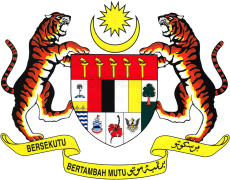What is the Malaysia-EU FTA?
The Malaysia-EU FTA (MEUFTA) is Malaysia's most recent bilateral initiative with the European Union. MEUFTA is a preferential trading arrangement that is expected to facilitate free movement of goods, services and investment between Malaysia and the EU, which remains the largest economic bloc in the world.
What is the scope of MEUFTA?
- MEUFTA covers 16 areas negotiated across 13 Working Groups. The 16 areas are:
i) Market Access for Goods
ii) Services
iii) Investment
iv)Technical Barriers to Trade (TBT)
v) Sanitary and Phyto-Sanitary (SPS) Measures
vi) Rules of Origin
vii) Intellectual Property Rights
ix) Competition
x) Government Procurement
xi) Sustainable Development Issues (Labour and Environment)
xii) Customs and Trade Facilitation
xiii) Trade Remedies
xiv) Dispute Settlement
xv) Mediation
xvi) Regulatory Transparency
xvii) Introductory, General and Institutional Matters
Negotiations across all areas are now text-basedAre there any areas excluded from the MEUFTA?
No. There are no a-priori exclusions. Flexibilities can be negotiated for very limited, highly sensitive sectors/ areas; however these flexibilities are likely to be in the form of longer timelines/ transitional periods rather than exclusions per se.
When will the MEUFTA negotiations be concluded?
Negotiators are working towards concluding MEUFTA by mid-2012. Upon conclusion, it will take anywhere from 6 months to one year for both sides (Malaysia and the EU) to complete their necessary domestic procedures (including translating the MEUFTA into all the European languages for the EU), after which the MEUFTA will enter into force. Any preference granted under MEUFTA can only be enjoyed once the Agreement enters into force
How are the MEUFTA negotiations undertaken?
For the Malaysian side, the Ministry of International Trade and Industry (MITI) is the Lead Agency that coordinates MEUFTA negotiations. However, given the technical nature of the discussions, Working Groups, led by sectoral Ministries, are established to negotiate on areas of specific interest to them. For example, the Working Group on Technical Barriers to Trade (TBT) is led by Standards Malaysia, while Government Procurement is led by Ministry of Finance.
- For the European side, the Lead Agency is DG Trade, while the Working Groups are led by sectoral experts
How many Working Groups are there?
A total of 13 Working Groups have been established, namely:
i) Market Access for Goods
ii) Services and Investment
iii) Technical Barriers to Trade (TBT)
iv) Sanitary and Phyto-Sanitary (SPS) Measures
v) Rules of Origin
vi) Intellectual Property Rights
vii) Competition
viii) Government Procurement
ix) Sustainable Development Issues (Labour and Environment)
x) Customs and Trade Facilitation
xi) Trade Remedies
xii) Dispute Settlement/ Mediation
xiii) Regulatory Transparency/ Introductory, General and Institutional Matters
In addition, the Chief Negotiators also have Special Sessions that meet separately during each Round to consider:
- Cross-cutting issues that cannot be parked under a single Working Group, e.g., Border Enforcement Issues that are related to IPR and Customs;
- Specific issues not addressed elsewhere, e.g., Halal/ Animal Welfare;
- Management issues such as the negotiating process, confidentiality of the documents shared over the course of MEUFTA negotiations, media coverage and next steps; and
- Joint reports, decision points and work programmes submitted by the individual Working Groups.
Which Ministry/ Agency leads the Working Groups?
|
LEAD MINISTRY/ AGENCY |
WORKING GROUP(S) |
|
MITI |
Market Access in Goods Trade in Services and Investment Rules of Origin Trade Remedies |
|
MINISTRY OF AGRICULTURE AND AGRO-BASED INDUSTRY |
Sanitary and Phyto-Sanitary (SPS) Measures |
|
MINISTRY OF DOMESTIC TRADE, CONSUMERISM AND COOPERATIVES |
Competition Policy Intellectual Property Rights |
|
MINISTRY OF FINANCE |
Government Procurement |
|
MINISTRY OF NATURAL RESOURCES AND ENVIRONMENT; AND MINISTRY OF HUMAN RESOURCES |
Sustainable Development Issues (Labour and Environment) |
|
ATTORNEY GENERAL'S CHAMBERS |
Regulatory Transparency/ Introductory, General and Institutional Matters Dispute Settlement/ Mediation |
|
STANDARDS MALAYSIA |
Technical Barriers to Trade (TBT) |
|
ROYAL MALAYSIAN CUSTOMS |
Customs and Trade Facilitation |
How does MEUFTA impact the GSP scheme?
The GSP scheme administered by the EU is a separate trade instrument from MEUFTA. Exports from Malaysia to the EU that are subject to the GSP scheme will continue to enjoy the tariff concessions granted by the scheme. Malaysia has also requested the EU to consider according GSP-plus benefits under MEUFTA.
I currently export Product A (HS Code xxxx.xx.xx) to the EU. What is the preferential duty for this product under MEUFTA?
As MEUFTA negotiations are still ongoing, MITI is unable to advise on the specific preferential duty for any product. Such information will only become available once the negotiations are concluded
Can I have access to the papers/draft texts being discussed?
Given the confidential nature of the documents, all papers/ draft texts that are being discussed and/or negotiated are shared with stakeholders on a need-to-know basis only. Stakeholders having specific interest in a certain area may request to be consulted, and MITI will consider this request.
How do I contribute to the MEUFTA process?
MITI welcomes inputs/ comments/ feedback on any obstacle faced by Malaysian exporters of goods and services in the EU market. Such information can be submitted to the Coordinator of MEUFTA:
Ms. Arividya Arimuthu
Ministry of International Trade and Industry
Block 8, Government Offices Complex
50622, Jalan Duta, Kuala Lumpur
Fax: 03-6201 9799
Email: arividya@miti.gov.my
Last Updated 2015-06-01 17:08:15 by Administrator
 |
| 











